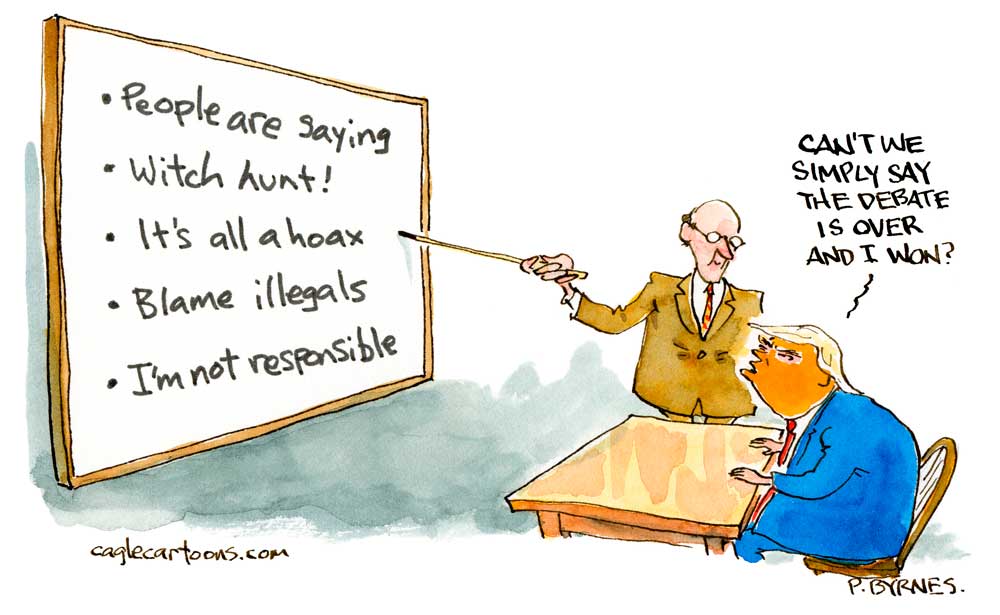
To include your event in the Briefing and Live Calendar, please fill out this form.
Weather: A 30 percent chance of showers and thunderstorms, mainly after 4pm. Mostly sunny, with a high near 92. Heat index values as high as 106. Southwest wind 5 to 13 mph becoming east in the afternoon. Winds could gust as high as 20 mph. Tonight: A 40 percent chance of showers and thunderstorms, mainly before 10pm. Mostly cloudy, with a low around 76. South wind 6 to 11 mph becoming light southwest after midnight. Winds could gust as high as 17 mph.
- Daily weather briefing from the National Weather Service in Jacksonville here.
- Drought conditions here. (What is the Keetch-Byram drought index?).
- Check today’s tides in Flagler Beach here.
- tropical cyclone activity here, and even more details here.
Today at a Glance:
The Palm Coast City Council meets in workshop at 9 a.m. at City Hall. For agendas, minutes, and audio access to the meetings, go here. For meeting agendas, audio and video, go here.
Book Dragons, the Kids’ Book Club at the Flagler Beach Public Library meets at 5 p.m. at the library, 315 South Seventh Street, Flagler Beach.
The U.S. Army Corps of Engineers hosts a public meeting on the 3.2-mile beach renourishment project about to start in Flagler Beach, at 6 p.m. at Santa Maria del Mar Church, 915 N. Central Avenue, Flagler Beach. The session is designed to inform the public and answer questions about the extent of the project, its impact on residents, its duration, its noise, and other issues of concern. City of Flagler Beach and Florida Department of Transportation officials will also provide updates about the Flagler Beach Fishing Pier rehabilitation project, and related secant wall construction and repaving of State Road A1A.
The NAACP Flagler Branch’s General Membership Meeting is scheduled for 6 p.m. at the African American Cultural Society, 4422 North U.S. Highway 1, Palm Coast (just north of Whiteview Parkway). The meeting is open to the public, including non-members. To become a member, go here.
Random Acts of Insanity Standup Comedy, 8 p.m. at Cinematique Theater, 242 South Beach Street, Daytona Beach. General admission is $8.50. Every Tuesday and on the first Saturday of every month the Random Acts of Insanity Comedy Improv Troupe specializes in performing fast-paced improvised comedy.
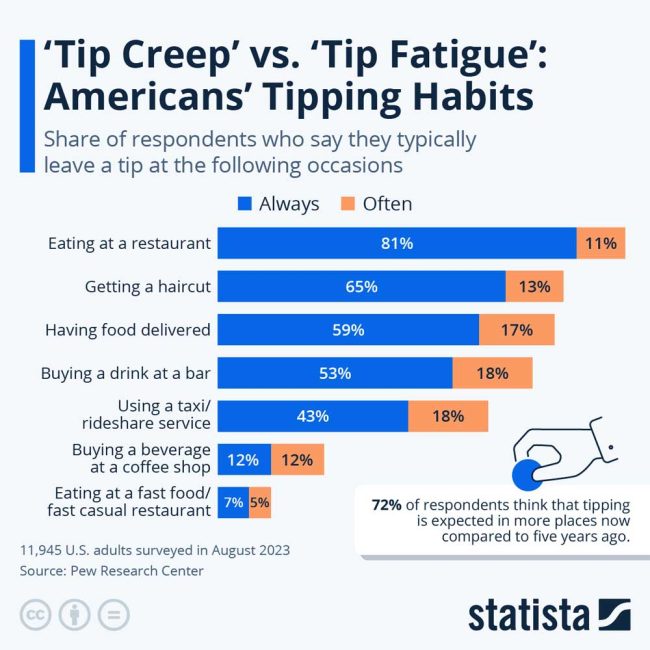 Notably: Yes, tipping is out of control. From Statista: “As if inflation wasn’t putting enough pressure on Americans and their credit cards already, there’s another crisis straining personal finances: tipflation. A significant number of Americans believe that tipping culture has gotten out of control, as they are not only asked for higher tips but also in situations that didn’t require tipping a couple of years ago. This phenomenon, also known as “tip creep”, is supported by a recent Pew Research Center survey of nearly 12,000 U.S. adults. Pew found that 72 percent of Americans feel that tipping is now expected in more places compared to five years ago and that 29 percent of respondents think of tipping as an obligation rather than a choice. There’s also a growing sense of frustration with digital payment systems suggesting high tip percentages during the payment process, making a generous tip feel like the standard option that customers are forced to consciously (and seemingly stingily) opt out of. Other surveys have shown that many people feel overwhelmed and confused by the increased expectations to tip in a wider range of situations, leaving them uncertain of when to tip and when not to. Pew Research found that 26 percent of respondents found it hard to figure out whether to tip for different kinds of services these days. Interestingly, this percentage climbs to 35 and 40 percent for respondents with a bachelor’s or postgraduate degree, suggesting that people perhaps tend to “overthink” tipping.”
Notably: Yes, tipping is out of control. From Statista: “As if inflation wasn’t putting enough pressure on Americans and their credit cards already, there’s another crisis straining personal finances: tipflation. A significant number of Americans believe that tipping culture has gotten out of control, as they are not only asked for higher tips but also in situations that didn’t require tipping a couple of years ago. This phenomenon, also known as “tip creep”, is supported by a recent Pew Research Center survey of nearly 12,000 U.S. adults. Pew found that 72 percent of Americans feel that tipping is now expected in more places compared to five years ago and that 29 percent of respondents think of tipping as an obligation rather than a choice. There’s also a growing sense of frustration with digital payment systems suggesting high tip percentages during the payment process, making a generous tip feel like the standard option that customers are forced to consciously (and seemingly stingily) opt out of. Other surveys have shown that many people feel overwhelmed and confused by the increased expectations to tip in a wider range of situations, leaving them uncertain of when to tip and when not to. Pew Research found that 26 percent of respondents found it hard to figure out whether to tip for different kinds of services these days. Interestingly, this percentage climbs to 35 and 40 percent for respondents with a bachelor’s or postgraduate degree, suggesting that people perhaps tend to “overthink” tipping.”
—P.T.
View this profile on Instagram
![]()
The Live Calendar is a compendium of local and regional political, civic and cultural events. You can input your own calendar events directly onto the site as you wish them to appear (pending approval of course). To include your event in the Live Calendar, please fill out this form.
January 2026
Contractor Review Board Meeting
Flagler County’s Technical Review Committee Meeting
Flagler Tiger Bay Club Guest Speaker: Jeff Brandes
Separation Chat: Open Discussion
The Circle of Light A Course in Miracles Study Group
Palm Coast Planning and Land Development Board
Flagler Beach United Methodist Church Food Pantry
Flagler County Drug Court Convenes
Model Yacht Club Races at the Pond in Palm Coast’s Town Center
Palm Coast Beautification and Environmental Advisory Committee
Flagler Beach City Commission Meeting
For the full calendar, go here.

No more arresting emblems of the modern culture of nationalism exist than cenotaphs and tombs of Unknown Soldiers. The public ceremonial reverence accorded these monuments precisely because they are either deliberately empty or no one knows who lies inside them, has no true precedents in earlier times. To feel the force of this modernity one has only to imagine the general reaction to the busy-body who ‘discovered’ the Unknown Soldier’s name or insisted on filling the cenotaph with some real bones. Sacrilege of a strange, contemporary kind! Yet void as these tombs are of identifiable mortal remains or immortal souls, they are nonetheless saturated with ghostly national imaginings. (This is why so many different nations have such tombs without feeling any need to specify the nationality of their absent occupants. What else could they be but Germans, Americans, Argentinians . . .?)
–From Benedict Anderson’s Imagined Communities: Reflections on the Origin and Spread of Nationalism (1983)
.








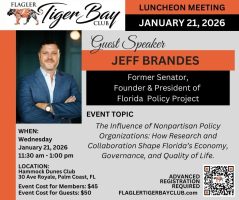






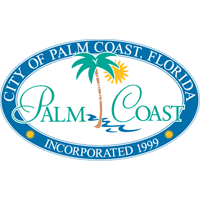
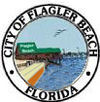






















Pogo says
@Regarding today’s repeated quote
Read and learn — or don’t…
https://www.google.com/search?q=Benedict+Anderson
The king is dead, long live the king.
Ray W. says
Thank you, Pogo.
Anderson purportedly created an idea of an imagined community, one that flowed from the explosion of disseminated information made possible by the invention of the printing press. Print media made possible the spread of ideas to enormous numbers of people who, at best, know each other indirectly.
Our founding fathers made no secret of their belief that previous political philosophers had held fast to the idea that a political body could be only so large. In the late 18th century, it was widely believed that no society could last if its body was larger than 50,000 like-minded people. The genius of some of our founding fathers was the idea that dissimilar populaces could be held together by checks and balances, that spreading limited political powers between the judiciary, the legislative, and the executive, would hold the government in check, by spreading limited political powers to the municipal government, to the county government, to the state government, to the federal government, would actually work. But to them, it would work only if no one political party ever gained unlimited power for an indeterminate period of time.
To Anderson, the printing press became “the middleman to the imagination of the community.” For the first time, community members could “imagine themselves residing in a common time and place, united by a print language with a league of anonymous equals.”
According to Anderson, “Any community so large that its members do not know one another on a face-to-face basis must be imagined to some degree.”
I suppose the proof of Anderson’s definition is the bumper sticker that is rare enough to stand out: “We the People are Pissed Off!” In reality, the bumper sticker should read: “We, a small portion of the members who form an extreme reactionary right wing of the once conservative Republican Party, are pissed off.” It may very well be that the small segment of pissed off people imagine themselves as part of a larger national identity, but in reality, they comprise a gaggle of malcontents who suffer from delusions of grandeur. They are not “the people.”
I spotted an article published in The Atlantic today, titled “The Center Must Hold.”
The theme is the critical importance of centrism in today’s fractious national identity.
Centrism, like conservatism, has a definition, according to the author. Centrism “isn’t the middle between an imaginary left and right. It isn’t a compromise between wherever the extremes happen to be dragging a society at any given moment. It isn’t simply a more palatable version of socialism or a poorly disguised right-wing ploy.”
“Centrism has a core set of values, a set of beliefs that underpin the entire political approach: a focus on moderation and pragmatism; an embrace of complexity; a deep and unwavering commitment to liberal democracy, including the essential institutions that uphold it; an understanding of the value of compromise; a belief in equality of opportunity; a positive liberal patriotism; and a trust that through balancing the tensions that exist in every nation, we can make people’s lives better.”
“When centrists govern, it is with the aim of making sure that no one is entirely overlooked, even if no one gets everything they want.”
“Populists neatly reduce any issue to two basic messages: Solutions are always simple, and failures are always someone else’s fault. … Populism is, at its core, the attempt to divide society into two groups — real people versus elites, oppressors versus the oppressed, locals versus outsiders. This divisive approach leaves no room for nuance, context, or complexity. Individuals are removed from the equation, left only as part of one group or the other. Populists leave no opportunity for introspection, debate, or self-criticism — which is why populism almost inevitably results in political extremism and polarization. Populist politicians want us to believe that compromise is never necessary, let alone desirable, but rather that it is a symbol of weakness and failure.”
According to the author, illiberal populist politicians who harbor authoritarian tendencies “imbue societies with fear and create violence and prejudice”, what the political scientist Lee Drutman calls the “cynicism and mistrust doom loop.”
Centrist politicians believe in hope, which differs slightly from the definition of optimism. According to Jonathan Sacks, the late chief rabbi of the United Kingdom, “Optimism is the belief that the world is changing for the better.” “[H]ope is the belief that, together, we can make the world better.” “Optimism is a passive virtue, hope an active one.”
Pogo says
@Ray W.
Thank you for your thoughtful, intelligent comment. Could it be that “the center” is a matter of balance — and nuance?
For myself, I wanted to learn more about Anderson in particular; and moreover, what others have to say about nationalism, identity politics, and related matters. If one reviews the entire page that my search prompted, they will find much to ponder.
Jackson says
When asked what he wanted to accomplish in a 2nd term trump answered; “But so I think, I think it would be, I think it would be very, very, I think we’d have a very, very solid, we would continue what we’re doing, we’d solidify what we’ve done, and we have other things on our plate that we want to get done,”.
Laurel says
Jackson: What’s scary is that meaningless babble resonates with his supporters.
By the way, what is he going to do about child care? He was asked three times but I guess I missed it.